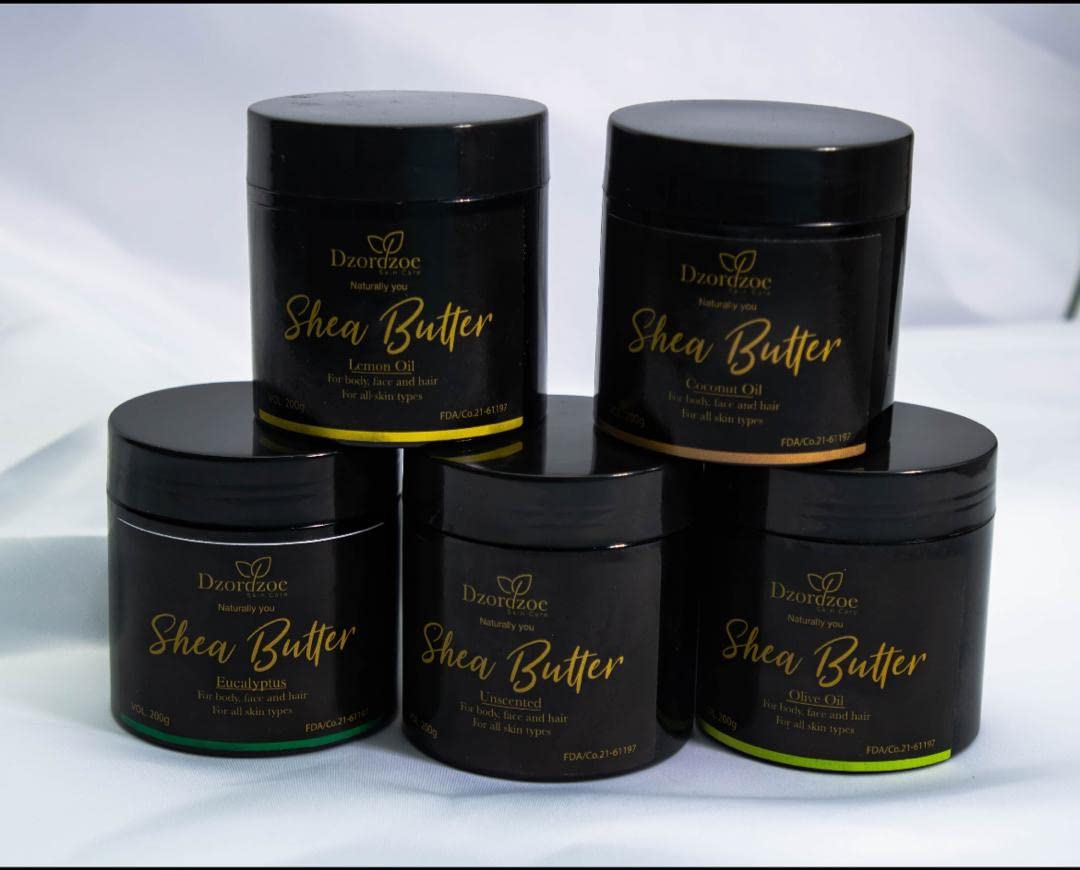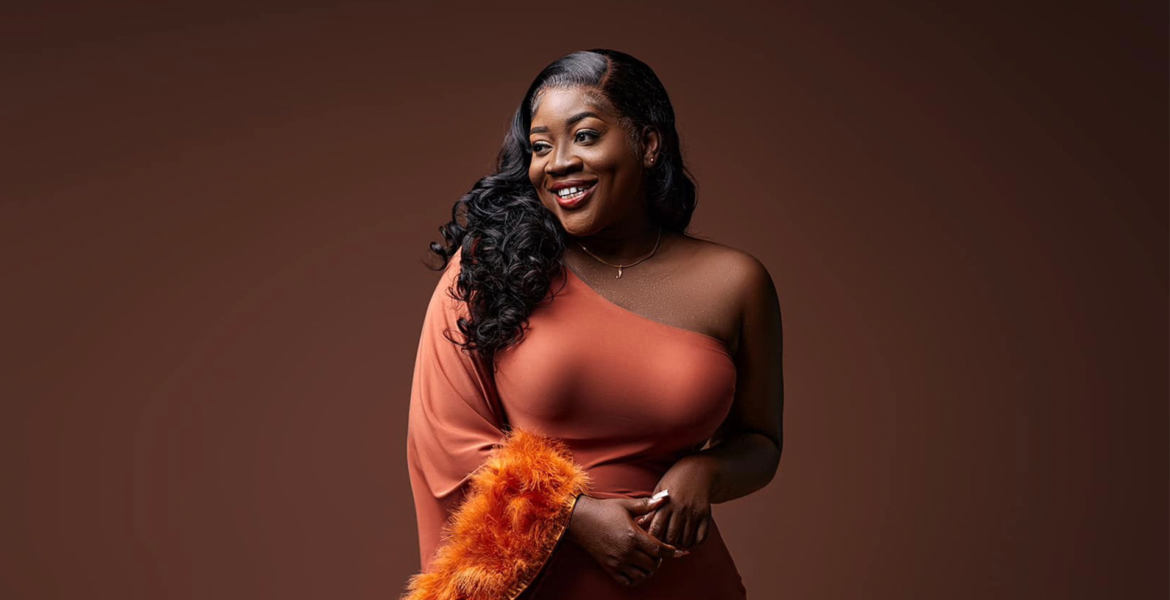Aforia Jennifer is the founder of Dzordzoe Skin Care, a Ghanaian sustainable beauty brand that uses natural ingredients to deliver authentic skincare for everyone.
Jennifer says she was inspired to start Dzordzoe in 2020, right after graduating from university, when the high rate of unemployment in Ghana made finding a job nearly impossible. Seeking both a career and a sense of fulfillment, she turned to skincare. “I realized that there were a lot of synthetic or toxic skincare products on the market,” she recalls. Meanwhile, Ghana was rich in organic resources like shea butter, but its strong smell kept many people from using it.
Determined to innovate, Jennifer began blending shea butter with essential oils to create products that were both natural and more appealing. “So I thought of, Okay, why don’t I make it innovative? Because I use Shea butter myself. So I came up with the Shea butter with innovative variances, like Shea butter with coconut oil, olive oil, because it has so many benefits to the skin and hair,” she explains.
Jennifer’s early steps included participating in an AfCFTA capacity building program, which expanded her knowledge and shaped her ability to scale beyond Ghana’s borders. But as she quickly learned, cross border trade came with its own hurdles. “I face competition from MNC multinational companies or Western products offering lower priced synthetic products,” she says. “When you compare our African product, to Western products, you identify that most African products have higher prices as compared to these product,” she notes.
To overcome this, Jennifer focuses on educating customers about the unique value and benefits of her products. “So what I do to address these challenges? I tell them, Listen, we are going green. Most of these products are made with synthetic ingredients. They are water based. I do shear butter, shear oil which has no chemicals. It has no parabens. We incorporate sustainable practices which is healthy for your well being. It is when you tell them the story behind the product, then they try to accept it, because looking at how the world is evolving, everyone is trying to go green,” she explains.

Standardization has also been a significant hurdle. According to Jennifer, “everyone has to seek for knowledge on how to get the correct standards to be able to sell or have their products on the shelves of African markets.”
Then came the logistical challenges bureaucratic hurdles, underdeveloped infrastructure, and high shipping costs making it harder for African SMEs like Dzordzoe Skin Care to compete. “These, contributes to the higher price when our product goes to the African market, because of high cost of shipping and also customs procedures when it gets to other African countries as well,” she explains.
But Jennifer refused to be defeated. Through collaboration, she found a way forward. “But one of the ways I’m using to address these challenge is, consolidating. I’ve come together with most of my colleagues, even in the same industry, to go into consolidated shipping, thus reducing the freight cost or the shipping cost, which is going to help our prices to be low,” she says.
“When you have a positive outlook, competitors become collaborators. We might do similar things, but our unique packaging and branding set us apart. I also work with local service providers like Ghana Post DHL, which offer SME friendly shipping packages,” she adds.
More than anything, Jennifer sees strength in unity and reminds others to do the same. “When you have a positive mindset, you see your competitors as collaborators. We are all unique. We might be doing the same thing, but our packaging identifies us, or it distance us,” she says.
Today, Jennifer’s sights are set far beyond Ghana. “I normally target the regional blocks. Currently, I have my product stock in Nairobi. My country, Ghana, has a trade house in Nairobi, which is, which is something that I want to take it upon myself to champion to institutions like the AU, UNDP, if they can support MSMEs to have a hub or trade houses in these regional blocks, maybe in Southern Africa, Western Africa, Eastern Africa, and Central Africa,” she says.
With this vision, Jennifer aims to establish trade hubs across African regional blocs, making it easier for small businesses to reach new markets. “So for instance, in Kenya, where my products are stocked, we can serve the Eastern African regions, like Uganda, like Tanzania, when it comes to Southern Africa, we can use South Africa as a center where we serve Namibia. So when we have hubs or centers and at least one country in the regional blocks, it will help to navigate through other countries in the regional blocks,” she explains.
To her, the cosmetic industry holds promise and potential. “But one thing you have to you need to be consistent, know your target audience or market. You don’t assume everyone uses skincare products. Now, when you ask me, I’ll tell you green consumers are my customers. And one thing is for you to be sustainable in this industry,” she says.

